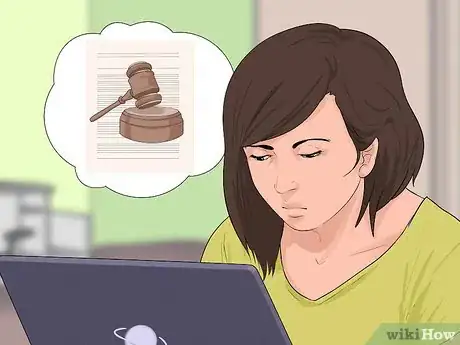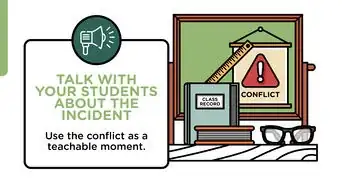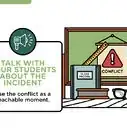wikiHow is a “wiki,” similar to Wikipedia, which means that many of our articles are co-written by multiple authors. To create this article, 11 people, some anonymous, worked to edit and improve it over time.
This article has been viewed 65,969 times.
Learn more...
Confidentiality is the requirement for keeping information confidential (secret). The Family Educational Rights and Privacy Act (FERPA) requires that information may not be shard with 3rd parties without a parent's or eligible students consent. Violation of this law may result in criminal and civil penalties as well as penalties imposed by the local Department of Education, school district, and/or state. Parents and students age 18 and over have the right to file a complaint with the U.S. Department of Education if they feel that the school has failed to comply with the requirements of FERPA. The name and address of the Office that administers FERPA are: Family Policy Compliance Office U.S. Department of Education 400 Maryland Avenue, SW Washington, DC 20202-852 Their number is 1-800-USA-LEARN (1-800-872-5327).
Steps
-
1Don't ever throw out papers in the garbage. Never rip up papers by hand. Always shred papers or use an ID Theft Prevention Stamp so no one can read those papers.[1]
-
2Don't ever look at student information on the computer or paper during class and when students are in the room and never write IEPs during class and when students are in the room.[2] Find another time.Advertisement
-
3Establish separate computers or accounts for student use of the computer.
-
4Don't ever speak about students around 3rd parties. If you have to, don't use their names or use generic names such as John and Mary.[3]
-
5Know all the laws that govern the use of confidentiality. Under FERPA, once a student has turned 18, you may not share information with his her parent/guardian unless their parent/guardian claimed them as a dependent (as defined by the Internal Revenue Code) for tax purposes or the parent/guardian was appointed as a legal guardian by the court because the student is incompetent. http://www2.ed.gov/policy/gen/guid/fpco/ferpa/index.html The usual definition of incompetent is having an impairment (disability) that would prevent someone from managing his or her own affairs (i.e. medical affairs, financial affairs). If you violate this, the student may file a complaint with the U.S. Department of Education Family Policy Compliance Office. The number is 1-800-USA-LEARN (1-800-872-5327). Their address is 400 Maryland Avenue, SW Washington, DC 20202-852.[4]
Community Q&A
-
QuestionCan a teacher tell a parent about another student's medical issues?
 Elissa SchwartzCommunity AnswerNo, this isn't appropriate. This is a matter of privacy. If someone has medical issues, they usually want the option to choose who they tell about it.
Elissa SchwartzCommunity AnswerNo, this isn't appropriate. This is a matter of privacy. If someone has medical issues, they usually want the option to choose who they tell about it. -
QuestionWhy is it important That you keep student information confidential
 Community AnswerTo protect them from potential attackers or anyone who might take advantage of them.
Community AnswerTo protect them from potential attackers or anyone who might take advantage of them.
Warnings
- Never share an 18 year old student's information with his/her parent/guardian without his/her written consent unless their parent/guardian claimed them as a dependent (as defined by the Internal Revenue Code) for tax purposes or the parent/guardian was appointed as a legal guardian by the court because the student is incompetent.⧼thumbs_response⧽































































